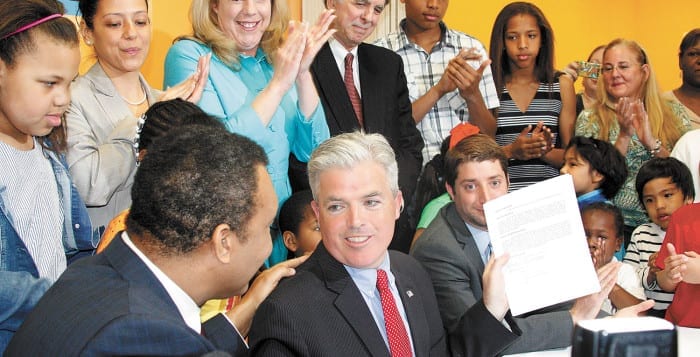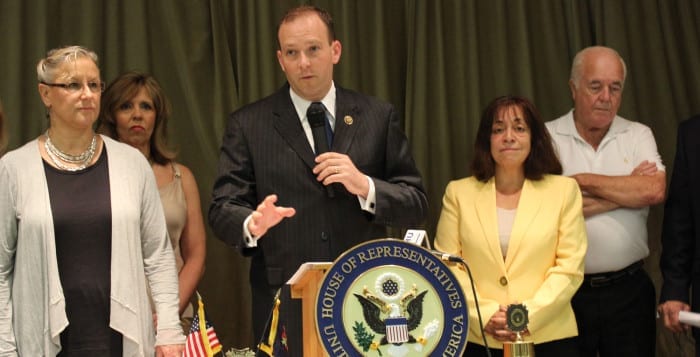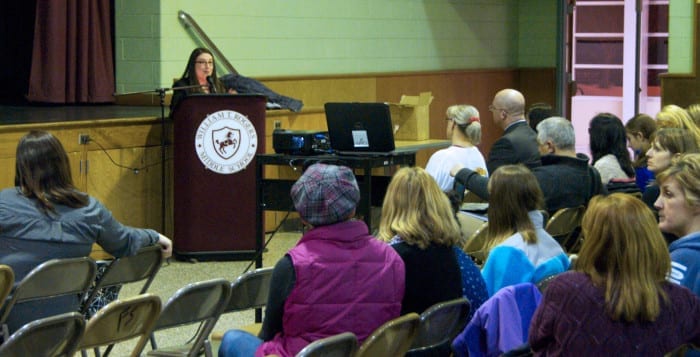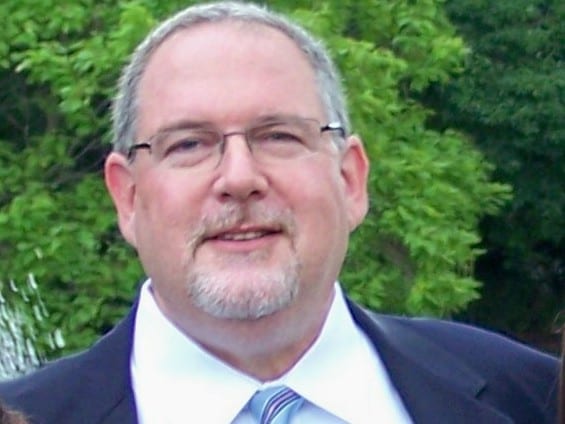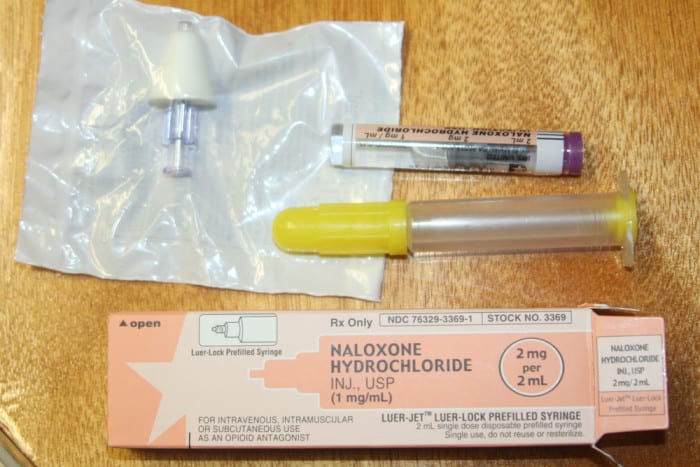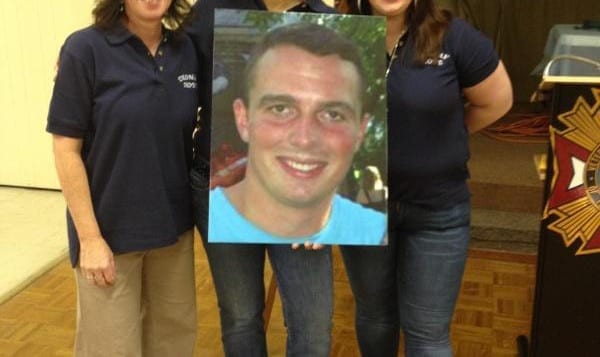Rep. Lee Zeldin took to Kings Park on Sunday to join the fight against drug abuse, an issue that is plaguing communities on Long Island and across the nation.
Zeldin (R-Shirley) announced his backing of two bills in Congress — the Comprehensive Addiction and Recovery Act of 2015, H.R. 953, and the Stop Overdose Stat Act, H.R. 2850 — which seek to help those struggling with drug abuse and prevent future abuse. Zeldin is co-sponsoring both bills.
“It’s clear we must come together as a community and a nation to combat this growing issue,” Zeldin said.
According to the New York State Office of Alcoholism and Substance Abuse Services, the percentage of state high school students who reported use of heroin more than doubled between 2005 and 2011, from 1.8 percent to 4 percent.
“We can’t treat them and street them, which is what is currently happening in our emergency rooms,” said Linda Ventura, treasurer of Families in Support of Treatment, known as F.I.S.T., a nonprofit organization dedicated to supporting and educating families which are struggling with a loved one’s addiction. “There should be no more shame with someone struggling with this disease, no, stigma — that has to go.”
Ventura, who is also involved with the Suffolk County Prevention Resource Center, is more than just a member of activist groups. She lost her son, Thomas, in March 2012 to drugs.
Bill 953 would help people grappling with drug abuse obtain the services needed to put them on the road to recovery. It would provide up to $80 million in the form of grant funding to help treat and prevent addiction through community-based education and prevention programs, and treatment and recovery programs.
The grants would further help expand prescription drug monitoring programs and provide police forces and emergency medical responders with higher supplies of Narcan, a prescription drug that reverses opioid overdoses.
The legislation has 20 co-sponsors — both Democrats and Republicans — and was introduced by Rep. Jim Sensenbrenner (R-WI).
“It’s a good bill on its merits alone, and it doesn’t matter what names or letters are attached to it,” Zeldin said.
Bill 2850 would provide an additional $25 million over a five-year period for Narcan production and distribution and provide more medical professionals and families with the lifesaving drug.
The act, introduced by Rep. Donna Edwards (D-MD), would also establish a preventative research task force that would look into ways to prevent future overdose deaths, while taking a preventative approach against drug abuse.
Zeldin was joined by members of the community including Suffolk County Legislators Rob Trotta (R-Fort Salonga) and Leslie Kennedy (R-Nesconset); Kim Revere, president of Kings Park in the kNOw, a task force promoting a drug-free community; and Dr. Andrew Kolodny, chief medical officer of Phoenix House, a drug and alcohol rehabilitation center. The congressman wanted to show the only way to win the battle was to remain united.
Like Ventura, the fight was personal for some of those in attendance at Sunday’s press conference.
“I lost my son, Timothy, in August of 2009 after a 14-month struggle with prescription drugs, which eventually led to heroin,” said Teri Kroll, secretary for F.I.S.T.’s board of directors and a member of the resource center. “He passed away after eight and a half months of sobriety.”
Saji Francis, the doctor who prescribed Timothy the drug he eventually became addicted to, was arrested shortly after Timothy passed away. In 2010, Francis was convicted of illegally selling prescription pills and sentenced to six months in jail.
Kolodny, who also serves as the director of Physicians for Responsible Opioid Prescribing, explained how many people start abusing drugs after taking prescription medications.
“To control this epidemic we need to prevent new people from getting this disease, and treat those who are suffering,” he said. “We also need to get doctors and dentists to prescribe more cautiously. If not, these overdose levels with continue to rise.”


